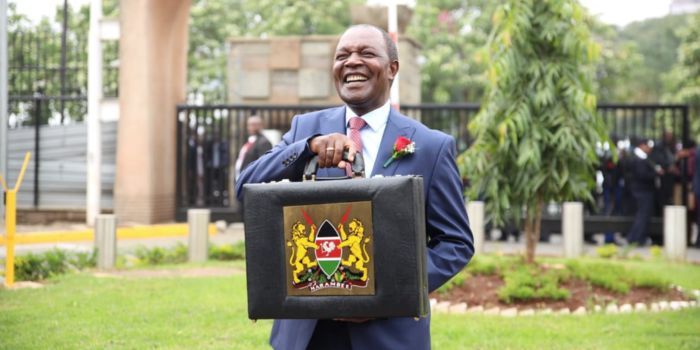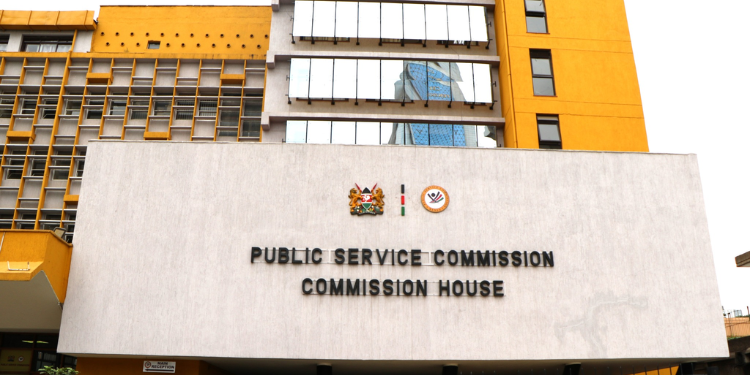Kenyan banks through the Kenya Bankers Association (KBA) have warned the government against the proposed 16% Value Added Tax (VAT) on financial transactions in the Finance Bil 2024.
In a statement, the association has urged President William Ruto and the National Treasury to reconsider the move because it poses a huge risk to economic growth including increasing fuel prices and weakening the Kenyan shilling.
According to KBA, since banks were not delivering any goods to customers, bank charges are not considered VATable. A principal that the government has held until the publication of the 2024 Finance Bill.
If enforced, the VAT will be implemented on various financial services, including issuing credit and debit cards, telegraphic money transfers, foreign exchange transactions, cheque handling, among others.

“The Kenya Bankers Association (KBA) urges the Government and the National Assembly to reconsider the proposed imposition of 16% Value Added Tax (VAT) on financial transactions outlined in the Finance Bill, 2024.
“It has long been held, and rightly so, that while VAT applies to payments for goods and services, bank charges are not a direct payment for anything, but a cost recovery. Since banks are not delivering any goods to customers, bank charges are not considered VATable. Kenya has, until now, held this principle to be true!” stated KBA.
Also Read: Finance Bill: Mpesa and Bank Charges Set to Increase in New Proposal
Banks Explain Consequences of the 16% VAT
Further, KBA warned that the increased cost of banking to customers will prevent financial inclusion and especially affect low-income individuals and small businesses.
The association explained that the VAT will increase the total taxation on financial services to 40 percent from the current 15% which is a deduction of the excise duty only.
This, added the statement, will significantly impact affordability and accessibility of banking services as well as the financial stability of the country.
Also Read: CBK Publishes List of Licensed Microfinance Banks
Effect on Foreign Exchange and Investment
At the same time, the banks warned the national treasury that the move will widen the margin charged on FX transactions therefore posing risks to economic growth.
According to KBA, the implementation of the VAT will lead to taxing of export proceeds which will in turn hinder the competitiveness of Kenyan products abroad. Subsequently, it will affect the growth of the tourism industry and have long-term economic impact.
Also, it will negatively impact Kenya’s foreign currency reserves and the strengthening of the Kenya shilling, increase fuel prices and the cost of living.
“This poses risks to economic growth by taxing export proceeds and hindering the competitiveness of Kenyan products, adversely affecting foreign investments in the country, reversing the recovery of the tourism industry, with long-term economic impact.
“The VAT application on FX transactions would also result in increased costs, including fuel prices, reversing efforts and progress made in stabilizing the cost of living,” explained the association.
Therefore, the banks have called on the National Treasury to consult them on the viable alternative revenue-raising measures that will promote economic growth
“KBA supports the Government’s efforts to boost revenue collection to meet the many demands of our developing nation. KBA also emphasizes the need for a balanced approach to taxation that supports public services and economic development without veering off from well-grounded banking principles and thus excessively burdening customers,” KBA added.
Follow our WhatsApp Channel for real-time news updates.
https://whatsapp.com/channel/0029VaB3k54HltYFiQ1f2i2C























































![Senator Allan Chesang And Chanelle Kittony Wed In A Colourful Ceremony [Photos] Trans Nzoia Senator Allan Chesang With Channelle Kittony/Oscar Sudi]( https://thekenyatimescdn-ese7d3e7ghdnbfa9.z01.azurefd.net/prodimages/uploads/2025/11/Trans-Nzoia-Senator-Allan-Chesang-with-Channelle-KittonyOscar-Sudi-360x180.png)

















